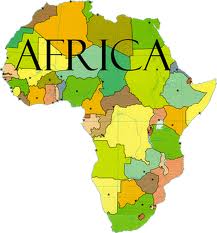My friend Kobby Parker shares his thoughts in response to my earlier article. Kobby is a banker and a writer.
Ghana Today
Recently, I was on a flight from Takoradi toAccra. The plane was full. I was the only chocolate-coloured man (I am not black) on the plane. The plane was full with cream-coloured (they are not white) people.
As the plane taxied and took off, I asked myself: What are they doing here? What do they want here? What have they seen that I haven’t seen?
I reasoned further: They are not here to work in factories. There is risk of malaria and robbery. They are safer in their country and yet they come in droves. In my own country, my own people cannot afford to use planes that fly within the country.
From the America’s, Europe and Asia they have come to harvest what God gave us and we only watch and wonder whilst they plunder.
Today, it is estimated by the Ghana Immigration Service and other government agencies that there are more than 300,000 Chinese inGhana. They have gone to the bushes in the hinterlands. They are digging out sacred rivers and forests, in search of gold. Three Chinese men I know make an average of $1million in gold sales DAILY! They attack local villagers for coming close to their illegal mining sites and the police do nothing.
The politician and the police do not blink. What can an individual do then?
Deut 28:33 – A nation whom you have not known shall eat the fruit of your land and the produce of your labour and you shall be only oppressed continually.
Ghana Today
I have taken note of a curious development in Ghanaian banking circles. A Ghanaian businessman cannot obtain financing from banks inGhana without collateral. If you want a loan for a factory, the bank would ask you to deposit the requested amount in cash as collateral or submit your house documents. If your house is not worth the amount you have requested, forget it. It then amazes me why Ghanaians are surprised there aren’t enough factories inGhana to employ our able bodied youth. But the story gets interesting.
Most foreigners doing business inGhanado not need collateral to obtain bank loans. Most banks, be they Ghanaian or foreign-owned, are more likely to avail a loan to a foreigner than a local.
Recently, a foreign-owned company has commissioned a $51 million flour processing factory inGhana. Many banks were over themselves to have a piece of the ‘financing pie’. only three banks won the race to give the company money – $17 million each. The only collateral is the factory itself and a piece of paper from the company’s head office inSingapore that is called a corporate guarantee.
If this is a workable model, then why don’t Banks inGhana finance factories to be owned by Ghanaians? Won’t those factories create more jobs for unemployed youth? And won’t the profit earned stay in the country to develop other sectors of the economy?
Deut. 28:43 – The alien who is among you shall rise higher and higher above you, and you shall come down lower and lower. He shall lend to you, but you shall not lend to him; he shall be the head, and you shall be the tail.
Ghana Today
Accra used to be safe, but not that safe anymore. Maybe it’s still relatively safer than elsewhere. But I would drive the shortest distance than walk and I would never carry anything resembling a laptop bag whilst walking. Lest I be struck with sudden fear. In spite of my fear of sudden fear, I have been mugged twice by my own country people at knife point. Twice!
Deut 28:66 – Your life shall hang in doubt before you; you shall fear day and night, and have no assurance of life.
Ghana Tomorrow
There is hope for the future says the Lord.
Is there anything more comforting than hope?





